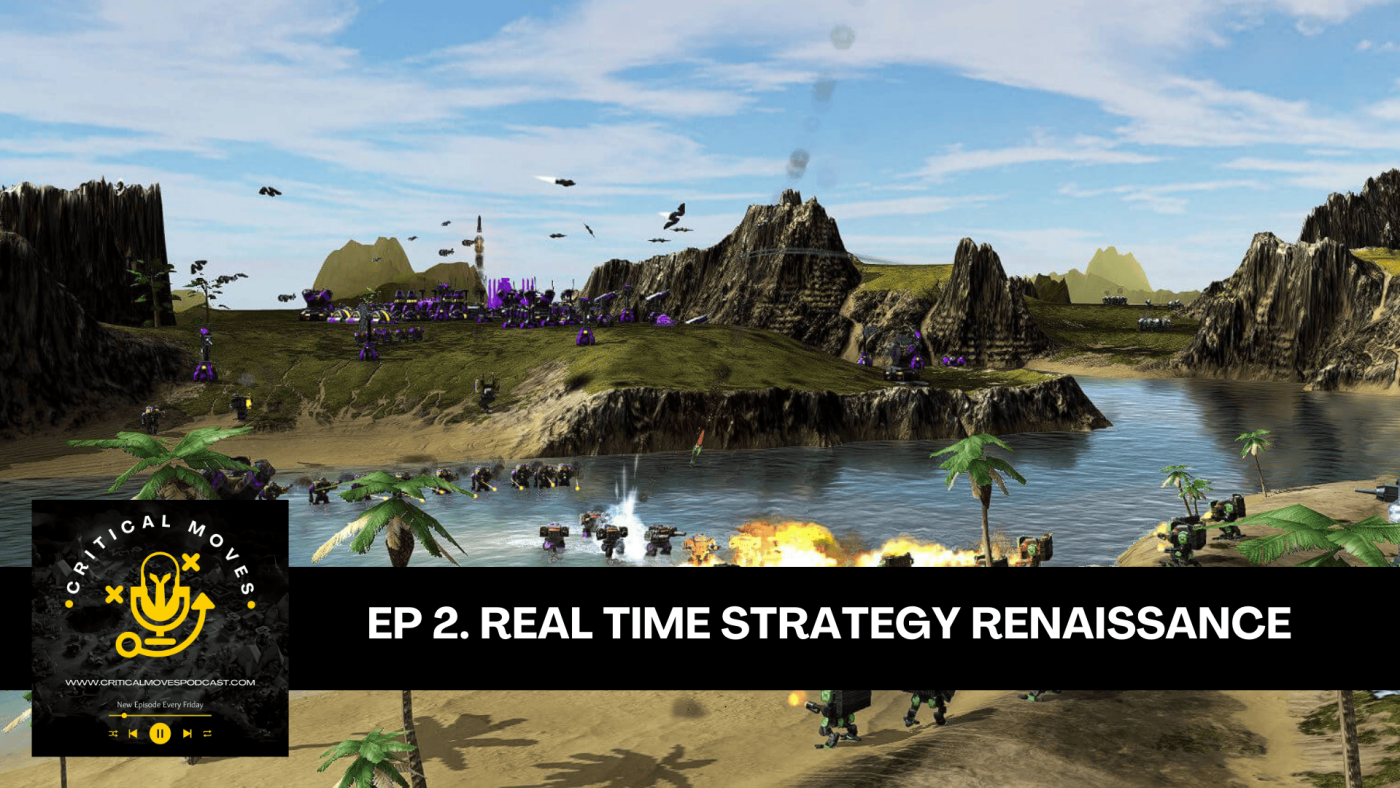The second episode of Critical Moves delves into the RTS Renaissance, exploring its origins, challenges, and the current resurgence in strategy gaming. Hosted by Tim, Nuno, Al, and Joe, the episode examines the golden age of RTS games, the reasons behind the genre’s decline, and what’s driving its recent revival. From fond memories of Westwood and Ensemble Studios to the impact of new platforms like Steam, the discussion brings decades of strategy gaming into focus.
Here’s what the episode covered:
- The Golden Age of RTS: From Command & Conquer to Age of Empires.
- Innovations that defined the genre and the transition to 3D.
- Why RTS games struggled during the 2000s and the impact of MOBAs and competitive shooters.
- The role of Steam and indie developers in reviving the genre.
- Lessons learned and where RTS is headed next.
The conversation began with a nostalgic look at the genre’s golden age, from the mid-1990s to the early 2000s. Each host reflected on their personal connections to iconic titles like Red Alert, Warcraft 2, Age of Empires, and Total Annihilation. These games not only defined PC gaming but also introduced gameplay mechanics and storytelling that remain influential today.
Al pointed to the constant stream of innovations during this era, from improved controls to 3D graphics, which kept the genre fresh and exciting. Nuno emphasized how games like Age of Empires perfected existing formulas, laying the groundwork for long-term success. Meanwhile, Joe and Tim highlighted how games like Warhammer: Shadow of the Horned Rat and Rome: Total War stood out for their unique mechanics and ambitious scale.
However, the transition to 3D and the rise of more accessible genres like competitive shooters and MOBAs created challenges for RTS games. Al argued that the genre “ran out of innovations,” leading to stagnation. Nuno pushed back, citing titles like Company of Heroes and Northgard as examples of innovation continuing well into the mid-2000s.
The hosts discussed how Steam transformed PC gaming, giving indie developers a platform to create and distribute niche titles. This democratization of game development helped revive interest in strategy games, including RTS, with titles like Wargame, Steel Division, and Falling Frontier gaining traction.
They also explored the importance of modding and community-driven projects. Tim praised Beyond All Reason as a standout example of a community-built RTS, while Al questioned whether relying on modding signals a lack of effort from developers. The consensus was clear: successful games are built on solid foundations, but modding can elevate them further.
The episode wrapped with a look at the present and future of RTS. The resurgence of the genre, driven by both nostalgia and new ideas, is exemplified by titles like Tempest Rising, The Last General, and Manor Lords. While AAA studios struggle to innovate, indie developers are leading the charge with fresh mechanics and bold concepts.
Listeners can find this episode on Spotify, Amazon Music, Apple Podcasts, or YouTube.
Next week, the podcast tackles the balance between fun, realism, and accuracy in strategy games. Don’t miss it.


